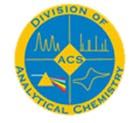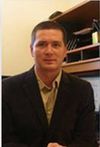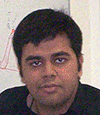Analytical chemistry for emerging contaminants in the environment
This symposium will provide an opportunity for scientists and engineers to share recent advances in the analysis of “Emerging Contaminants” and new knowledge regarding their environmental fate. Emerging Contaminants include hormones, pharmaceuticals, personal care products, engineered nanomaterials, new pesticides, flame retardants, and biotoxins, that are of increasing interest due to their relatively unknown environmental impacts and long-term ecological effects.
In addition to novel analytical techniques for environmental monitoring of Emerging Contaminants, we will also include presentations on:
- New research findings on the fate and behavior of these environmental contaminants from laboratory and field studies
- Identification of the chemical and biological transformation products in plants, soil, water, and water treatment systems
- Sorption, leaching, run-off, and biodegradation studies to elucidate the fate and transport of these chemicals in the natural environment
- Ecotoxicology and risk assessment of emerging contaminants
This session will take place on Friday, June 4th in Kellas 103.
Sponsors
This session is sponsored by the ACS Analytical Division. Join the analytical division, and enjoy:- -Connection with this community of analytical scientists and support of its work
- -Biannual newsletter
- -Access to members-only web services such as anticipated web broadcast of meeting content
- -Opportunity to take part in Division leadership
- -Opportunity for Nationally recognized awards
Session organizer
Diana S. Aga is an Associate Professor of Chemistry at the University at Buffalo, The State University of New York. Her current research involves the investigations on the fate, transport, and ecotoxicological effects of pharmaceuticals, endocrine disrupting chemicals, persistent organic pollutants,and engineered nanomaterials in the environment. A major focus of her research is to identify unknown transformation products of pharmaceuticals in various environmental matrices using a combination of novel analytical strategies in sample preparation, bioassays, and modern mass spectrometric techniques.
Confirmed speakers
- Prof. Silvana Andreescu, Professor, Department of Chemistry, Clarkson University, Potsdam, NY.
- Mr. Jerry Tso, University at Buffalo, Department of Chemistry, Buffalo, NY: "Wrong-way-round ionization enables simultaneous analysis of free and conjugated estrogens, sulfonamides, and tetracyclines by liquid chromatography-mass spectrometry".
- Ms. Divina Navarro, University at Buffalo, Department of Chemistry, Buffalo, NY: "Role of natural organic matter on the fate and transport behavior of quantum dot nanoparticles in the aquatic and soil environment".
- Prof. Omowunmi A. Sadik, Department of Chemistry, State University of New York at Binghamton , Binghamton, NY.
- Dr. Benjamin D. Stanford, Director of Applied Research, Hazen and Sawyer, P.C.: "Perchlorate, Chlorate, and Bromate in Hypochlorite: Analytical Methods and Implications for Water Treatment"
- Prof. Sam R. Nugen, Department of Food Science, University of Massachusetts, Amherst, MA: "Development of new analytical detection systems for the detection of pathogens and toxins in food."
- Prof. Sarbajit Banerjee, Department of Chemistry, University at Buffalo, Buffalo, NY: "Towards a Mechanistic Understanding of the Environmental Fate and Transport of Manufactured Nanomaterials."
Program
Friday, June 4, 8:30 AM - 11:45 AM
- Analytical Chemistry for Emerging Contaminants in Environment
- Kellas 103
Organizer/Presider: Diana Aga
8:30 Introductory Remarks
8:35 269 Perchlorate, Chlorate, and Bromate in Hypochlorite: Analytical Methods and Implications for Water Treatment. Benjamin D. Stanford1,2, Aleksey N. Pisarenko2,3, Shane A. Snyder2 and Gilbert Gordon3, (1)Hazen and Sawyer, (2)Southern Nevada Water Authority, (3)Miami University
9:05 270 Development of New Analytical Detection Systems for the Detection of Pathogens and Toxins in Food. Sam R. Nugen1 and Antje J. Baeumner2, (1)University of Massachusetts, (2)Cornell University
9:35 271 Interactions of Natural Organic Matter with Manufactured Nanocrystals. Divina A. Navarro, David F. Watson, Diana S. Aga and Sarbajit Banerjee, University at Buffalo, The State University of New York
10:05 Intermission
10:20 272 Phase-Inverted Polyamic Acid Membranes for Simultaneous Detection & Removal of Engineered Nanomaterials. Wunmi Sadik and AIling Zhou, SUNY-Binghamton
10:50 273 Mechanistic Studies of Nanoparticle-Induced Toxicity at Organ Level in Zebrafish. Silvana Andreescu1, Cristina Ispas1 and Kenneth N. Wallace2, (1)Clarkson University, (2)Clarkson University
11:20 274 Role of Natural Organic Matter on the Fate and Transport Behavior of Quantum Dot Nanoparticles in the Aquatic and Soil Environment. Divina Angela G. Navarro, Diana S. Aga, Sarbajit Banerjee and David F. Watson, University at Buffalo
Friday, June 4, 1:15 PM - 3:30 PM
- Analytical Chemistry for Emerging Contaminants in Environment
- Kellas 103
Organizer/Presider: Diana Aga
1:15 328 Analysis of Synthetic Musk Compounds in Great Lakes Fish. Michael S. Milligan1, Scott Simpson1, Bernie S. Crimmins2, Thomas M. Holsen2, Xiaoyan Xia2, Philip K. Hopke2 and James J. Pagano3, (1)SUNY Fredonia, (2)Clarkson University, (3)SUNY Oswego
1:45 329 Wrong-Way-Round Ionization Enables Simultaneous Analysis of Free and Conjugated Estrogens, Sulfonamides, and Tetracyclines by Liquid Chromatography-Mass Spectrometry. Jerry Tso1, Sudarshan Dutta2, Shreeram Inamdar2 and Diana Aga1, (1)University at Buffalo, (2)University of Delaware
2:10 330 Quantitative Screening of Emerging Contaminants in Lake Michigan Lake Trout. Bernard Crimmins1, James Pagano2, Xiaoyan Xia1, Thomas Holsen1, Mike Milligan3 and Philip Hopke1, (1)Clarkson University, (2)SUNY Oswego, (3)SUNY Fredonia
2:35 331 Monitoring Tap Water for Trace Contaminants Using an On-Line, Real-Time, Membrane-Based Extraction Cell. Lindsay Harrington and John P. Hassett, SUNY College of Environmental Science and Forestry
3:00 332 Effects of Calcium Treatment on Soil Organic Matter and Microbial Activity. Ankit Balaria and Chris Johnson, Syracuse University
3:25 Concluding Remarks





